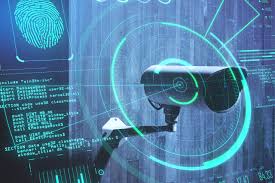Electric Vehicles
Electric vehicles (EVs) have exploded in popularity recently, and it’s fascinating to analyze this trend through the Diffusion of Innovations Theory by Everett Rogers. This theory helps explain how new ideas and technologies spread, and it really sheds light on why so many people are hopping on the EV bandwagon while others are still hesitant.

Why Did EVs Catch On?
At first, electric vehicles faced a lot of skepticism. Concerns about range, charging, and performance were major roadblocks. But then, as climate change became a hot topic and government incentives rolled out, things started to change. Companies like Tesla emerged as innovators, proving that EVs could be stylish, fast, and practical. This caught the attention of early adopters who are willing to take a risk on new technology. Their excitement and positive experiences fueled a growing interest among the general public.
The Role of Early Adopters
Early adopters play a crucial role in spreading new technology. They tend to be more open to change and often share their experiences on social media. As more people saw their friends and influencers driving electric cars, it created a buzz. Plus, with the expansion of charging stations and improvements in battery technology, the perceived downsides of owning an EV started to fade. It’s kind of like a snowball effect, the more people that adopt, the more attractive it looks to those sitting on the fence.
What About Late Adopters?
Of course, not everyone is eager to jump into the EV scene. Late adopters tend to be more cautious and may wait for the technology to prove itself. They often look for lower prices and more established reliability before making the switch. Laggards, who are really resistant, might stick to their gas cars out of a sense of familiarity or skepticism about the new tech. It’s interesting how personal values and social circles can really shape these decisions.
Downsides of Electric Vehicles
Despite their many benefits, EVs do have some downsides. Battery production can be environmentally harmful, and the charging infrastructure is still catching up. For people living in more rural areas, finding a charging station can be a hassle. Additionally, while EVs save money on fuel and maintenance in the long run, the initial purchase price can be a barrier for many.
Gas vs. EV - This link dives deeper into comparing gas vs electric cars.
Personal Decision-Making
When I think about whether to get an EV, it really comes down to weighing the pros and cons. Sure, the upfront cost is higher, but then I consider the savings on gas and maintenance over time. Plus, driving an electric car feels like I’d be doing my part for the environment, which is important to me…who am I kidding. I WILL NEVER GET AN ELECTRIC VEHICLE!!! People can say all they want about the climate change and how EV’s are our future, but not for me. What brings me happiness is feeling and hearing the power of an American built V8. Electric cars take the fun out of driving making it feel like a chore.
Plan For Gas Cars - This link shows how some states are planning to phase out gas cars.
Price Comparision - Shows the cost comparisons to owning an EV vs gas car
Weighing Costs and Benefits
In my mind, it’s all about balancing the costs and benefits. While the initial investment might be steep, I believe the long-term savings could make an EV worth it in people eyes. Plus, with the increasing awareness of our carbon footprints, going electric seems like a responsible choice. As more people think about these factors, I can see EVs continuing to gain traction.
In conclusion, electric vehicles perfectly illustrate the principles of the Diffusion of Innovations Theory. The combination of innovative technology, early adopters, and a societal shift toward sustainability has helped EVs become mainstream. While challenges remain, the benefits of both environmental and economic factors make a compelling case. As we navigate our choices, the appeal of driving an EV is likely to grow.














